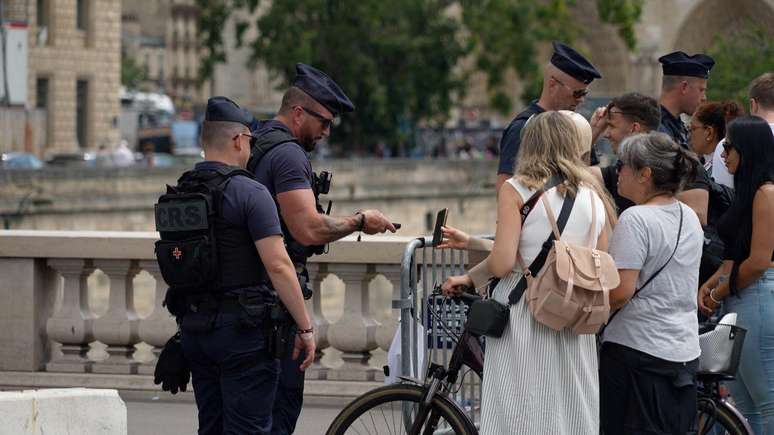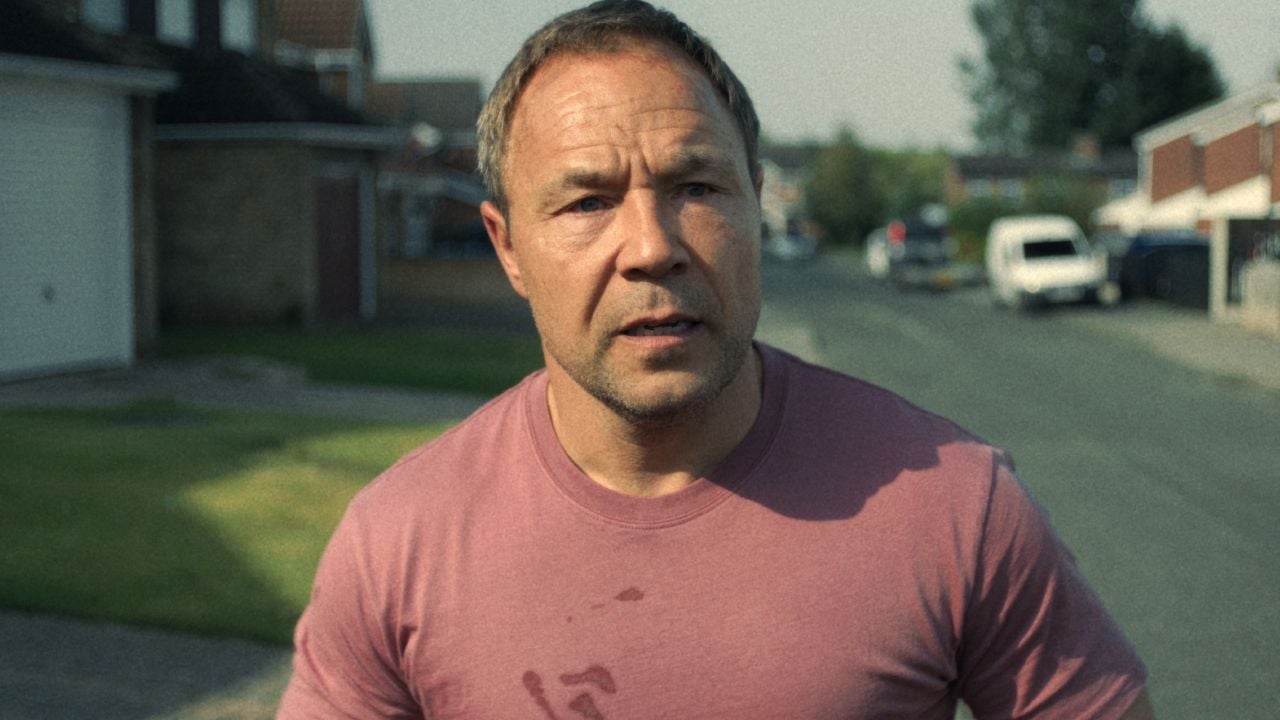An unprecedented security operation is underway, with road closures and anti-drone teams stationed across the city.
A group of disappointed tourists gazed wistfully through the maze of metal fences lining the Seine.
Ahead of them, Notre Dame Cathedral and other Parisian treasures lay, strangely, out of reach.
“We don’t have a code,” said a Mexican woman, watching as others — armed with the security QR code needed to access the area — passed through a police checkpoint, beeping in approval.
Further down, near the Eiffel Tower, a tired couple, dragging large suitcases, made a U-turn on a crowded sidewalk to change direction.
“Closed. You’ll have to go around the other side,” a French policeman had just said, pointing south.
As Paris prepares to unveil its Olympic opening ceremony – a riverside extravaganza that will see athletes on polished boats parading through the heart of the French capital next Friday (26/7) – the country’s police and armed forces are making final adjustments for an unprecedented security operation.
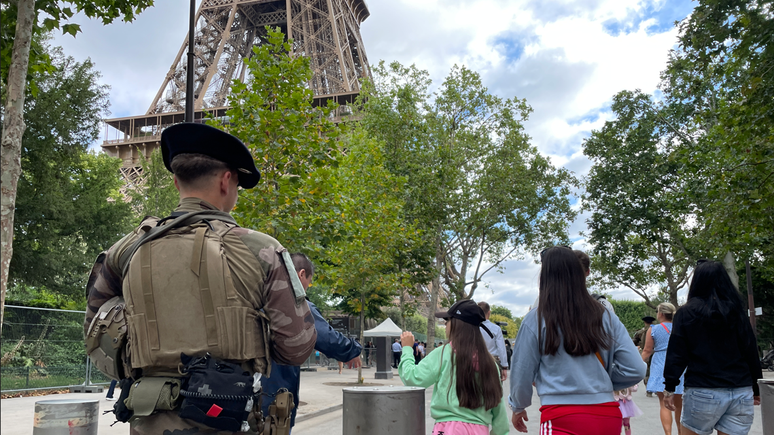
“We are ready,” said President Emmanuel Macron with a smile, his usual demeanor seemingly intact after weeks of political turmoil triggered by his recent shock decision to dissolve the French parliament.
The security operation – the expression hardly does justice to its scale – involves the largest peacetime deployment of security forces in French history, with up to 75,000 police, soldiers and guards hired to patrol Paris.
Roads and metro stations have been closed. Some 44,000 barriers have been erected. And an elaborate QR code system has been created for residents and others seeking access to the Seine and its islands.
There were inevitably teething problems and frustrations in a city that would normally be filled with foreign tourists with no access restrictions.
“I’m a little worried. I’ve never seen him so calm. Ninety percent of the customers have already left,” said waiter Omar Benabdallah, 25, looking at the empty tables on the Cité sidewalk.
But French officials insist the disruption will be brief: many of the barricades along the Seine will be removed after the opening ceremony, and it will be worth it, with the world treated to a memorable spectacle celebrating the history and beauty of Paris.
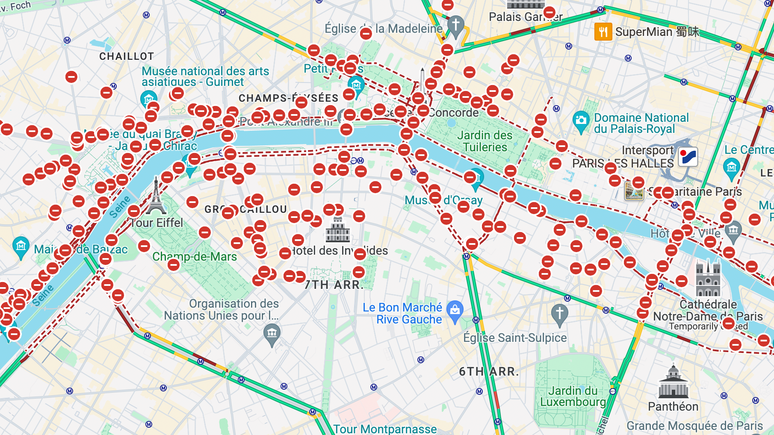
“I wouldn’t describe it as a nightmare. We are focused and determined,” General Lionel Catar said with a half smile. He is responsible for coordinating the work of some 5,500 French soldiers deployed in the capital.
Qatar acknowledged the “exceptional” scale of the Olympic and Paralympic security operation, but said it evolved from France’s pre-existing Operation Sentinelle, a decade-long response to a series of deadly attacks by Islamist groups and individuals.
“We have demining teams. We have dog teams. We have anti-drone systems, radars and divers watching the Seine,” Qatar said.
The decision to move the operational headquarters from the outskirts of Paris to the large and sprawling Ecole Militaire behind the Eiffel Tower was based on advice from British police following their experience at the 2012 London Olympics.
“I think their headquarters were a bit far from the city center. They advised us to stay close to the responsible politicians and the police,” he said.
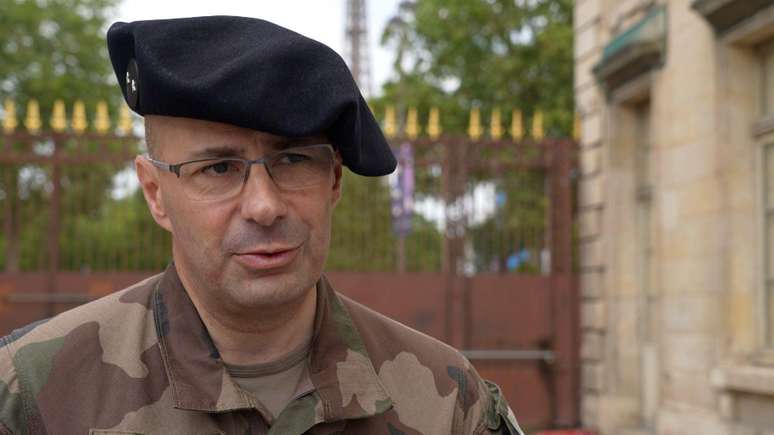
The operation also involves 1,750 foreign police officers from dozens of countries, including the United Kingdom, Spain, Germany, South Korea and Qatar.
Around 250 British officers – and 50 police dogs – will be in France in the coming weeks, some of them joining French patrols in central Paris.
“We expect almost half a million British citizens to come to see the Games. This is the first time we have been able to send officers to a major event. [no exterior] in this way,” said Chief Superintendent Matt Lawler, head of the National Police Coordination Centre.
There was also direct military cooperation between France and the UK on anti-drone technology, notably during the opening ceremony.
French authorities say there have been no specific threats to the games, but that they are concerned about “militarized terrorism” – both from abroad and within France. They are also focused on the risk of cyberattacks that could affect ticketing systems and other infrastructure.
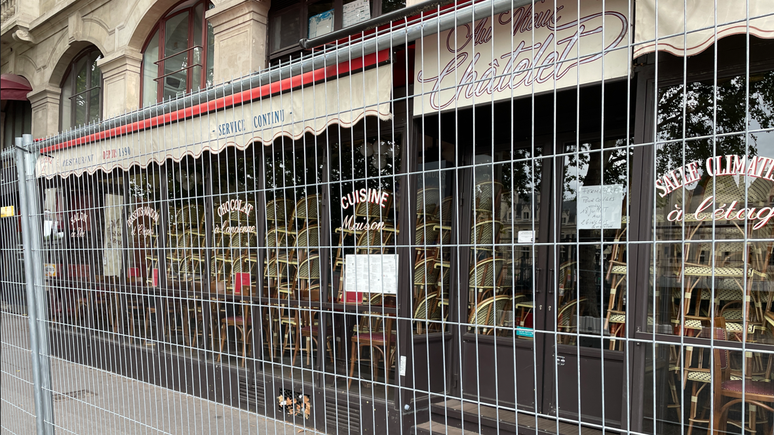
In recent months, the government has expressed growing irritation at what it says is a Kremlin-backed online campaign to raise exaggerated fears about security – and French preparations – for the Olympic Games.
“The interference and distortion of information is not only done by Russia, but also by other countries that we are closely watching. We are not naive. We hope that an Olympic truce will be respected… by all countries,” said Gerald Darmanin, France’s Interior Minister.
On Tuesday morning (23/7), on the outskirts of Paris, an elite team of French police carried out additional training for a hostage situation on board a vehicle.
Amid gunfire and loud explosions, the unit – the same one that responded to the 2015 Bataclan nightclub attack – rescued civilians trapped in a bus.
“We have spent more than two years preparing for these Games. We hope we will not have to take any action,” said unit commander Simon Riondet.
Source: Terra
Rose James is a Gossipify movie and series reviewer known for her in-depth analysis and unique perspective on the latest releases. With a background in film studies, she provides engaging and informative reviews, and keeps readers up to date with industry trends and emerging talents.

